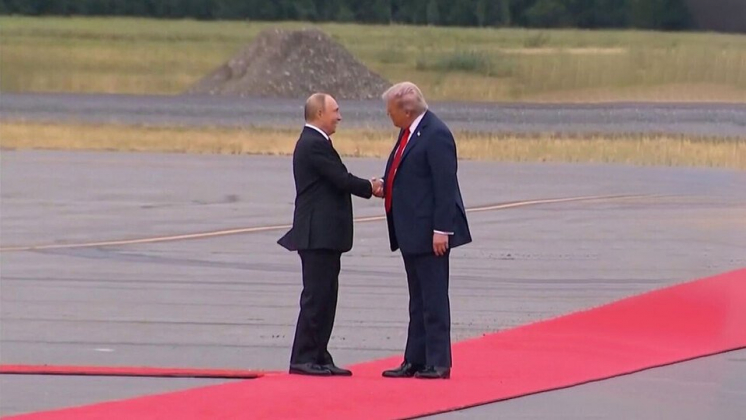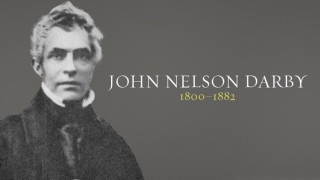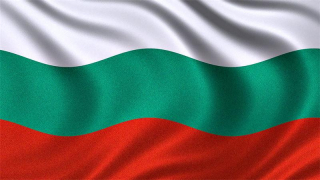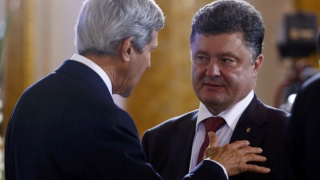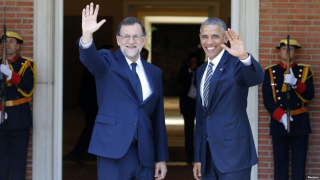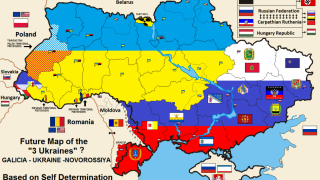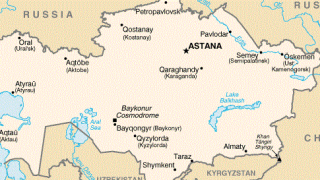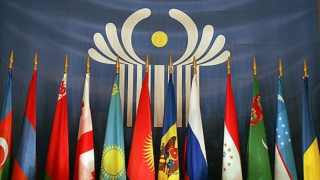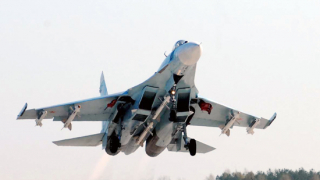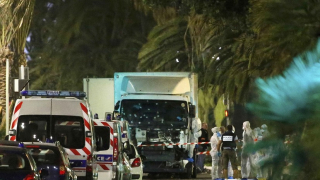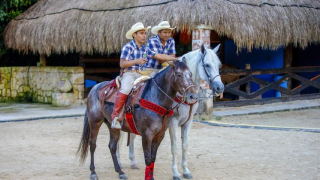Dialectical Clash: Trump, Putin, and the Crisis of Liberal Ontological Order
Perhaps the key lesson to be drawn from the Alaska summit and its aftermath is that, despite the stark divergence in their foundational political philosophies, the current trajectories of the United States and Russia reveal some tacitly symbiotic alignment. On the one hand, Russia’s civilisational state, under Vladimir Putin, asserts the primacy of historical becoming and moral authority over Western liberal claims to universality, whilst the United States, under Donald Trump mobilises neo-reactionary principles to restructure sovereignty through the concentration of elite authority. These undertakings proceed independently, rooted in ontologically distinct conceptions of legitimacy; yet, in their interplay, they engender a mutually reinforcing effect upon the global stage, whereby each nation’s trajectory enlarges the ideological and geopolitical space within which the other’s counter-revolutionary project may advance.
This functional interdependence should not be misconstrued as philosophical convergence. On the contrary, the radical asymmetry of objectives — Russia’s metaphysical reclamation of historical sovereignty versus America’s procedural reordering of institutional power—creates conditions in which each actor exploits the structural fractures of the liberal order, producing what might be termed a mechanism of reverse geopolitical jiu-jitsu.
Russia weaponises the contradictions inherent in liberal governance—populist discontent, institutional gridlock, and ideological disorientation — to erode transnational cohesion, whilst the United States redirects these fissures to legitimise ad-hoc coalitions, sanctions regimes, and strategic realignments, thereby consolidating its procedural preeminence. Russia’s existential will to embrace even nominally Pyrrhic struggles, exemplified most vividly in Ukraine, fractures European unity; yet the United States permits such discord to reactivate dependence on its leadership, transforming Russian gains into instruments of systemic leverage.
Conversely, Russian framing of U.S. sanctions and unilateral interventions as evidence of Western impotence reinforces its civilisational narrative and reinforces its internal cohesion. Thus, systemic clash becomes a deliberate instrument of sovereignty: the United States consolidates authority through flexible, interest-driven networks, whilst Russia positions itself as the architect of a post-Western order, dismantling liberal universalism in the process. The paradoxical utility of their antagonism lies precisely in its asymmetry: each actor’s capacity for disruption enlarges the strategic latitude of the other.
Within this recursively symbiotic dynamic, the proximate victim is the European project — including the United Kingdom—which finds itself strategically and ideologically sandwiched between two powers whose divergent yet mutually enabling counter-revolutions lay bare the limits of Brussels’ authority and the fragility of the postwar continental order. The elegance of this tacit alignment resides in its very paradox: it is the depth of their difference that renders their interests momentarily consonant, whereby systemic rupture and historical conflict are harnessed not as ends in themselves, but as instruments through which sovereignty is consolidated and global legitimacy reassessed.
Thus, it is quite extraordinary to observe the unfolding of a worldwide polycrisis from which radical counter-revolutions may arise. However, the complexity and interwoven nature of the ongoing international developments have paradoxically produced a diminution of noetic diversity—the range of interpretive faculties essential for responding adaptively to systemic change of a magnitude that some equate to the Thermidorian Reaction of 1794 at a global scale.
This intellectual shortfall is particularly acute among European elites, constrained by conventional understandings of American populism and Russian assertiveness, who often reduce these movements to vulgarity or simple authoritarianism.
Such misreadings stem from a failure to distinguish between populus and vulgus in Trump’s political praxis, and to appreciate the ontological depth of Russia’s challenge to the Western liberal order. Classical populism represents the legitimate political body (populus) opposing a corrupt elite, while mobilisation of the vulgus is volatile and unstructured.
Trump’s strategy, however, transcends both: it seeks to restructure institutional order in response to the tyranny of fluctuating, uncritical majorities, exemplified by progressive Woke movements. Similarly, Putin’s project is not a retreat into crude nationalism but a metaphysical reclamation of history, challenging the liberal–Enlightenment paradigm’s claim to universality. A key point of departure for understanding this dual counter-revolution lies in Putin’s address of 21 February 2022, in which he tacitly declared the death of Fukuyama’s “end of history” and the resurrection of historical becoming (Putin, 2022).
By denying NATO’s legitimacy as the “arbiter of the destiny of humanity,” as reiterated by Foreign Minister Sergei Lavrov, Putin issued a comprehensive challenge to the American-led world order, asserting Russia’s moral authority to resist Western attempts to constrain history’s natural movement toward a multipolar balance (Lavrov, 2022). This shattered the post-Cold War consensus, framed by Fukuyama as the triumph of liberal democracy’s mechanical stability (Fukuyama, 1992). In doing so, Putin reintroduced a Hegelian-inspired premise: history advances not through static consensus but through the active resolution of structural contradictions.
This breakdown created the ideological space for Trump’s counter-revolution, which could scarcely have emerged without the prior fracturing of the liberal myth of inevitable convergence. Putin’s reclamation of history as conflict and becoming—against Fukuyama’s vision of a frictionless universalist consensus—provided the ontological precondition for Trump’s neo-reactionary project, which seeks to reconstitute sovereignty through the concentration of power in functional elites operating beyond normative constraints. Trump’s approach draws upon neo-reactionary thinkers such as Curtis Yarvin and Nick Land, inspired by Carlyle and Nietzsche, who reject the liberal–Enlightenment paradigm’s political centrism.
Yarvin’s neocameralism conceives the state as a private corporation led by a CEO with absolute authority, accountable not to public deliberation but to performance (Yarvin, 2008), while Land’s accelerationism advocates dismantling liberal nation-states in favour of autonomous, market-driven networks (Land, 2012). Both reject conventional preconditions for political legitimacy, insisting that success itself defines legitimacy.
Figures such as Peter Thiel and Elon Musk amplify these ideas, positioning political order as a realm for rational institutional design by capable minorities, rather than a mere extension of popular will. This vision resonates with Hegelian dialectics, which, as T. L. S. Sprigge noted, require conflict, tension, and rupture rather than compromise (Sprigge, 1993). By contrast, Western centrism, with its “repressive tolerance” (Marcuse, 1965), obstructs historical development by treating left and right as symmetrical, ignoring the qualitative leaps and asymmetries inherent in dynamic dialectics.
Russia’s challenge, in parallel, rests on a reinterpretation of the classical Roman distinction between potestas and auctoritas, interpreted through a Heideggerian lens. Putin’s Russia asserts that states exist within an anarchic international environment, without a supranational authority capable of enforcing law. In this context, the so-called “international order” reflects the policies of a Western bloc rather than a genuinely pluralist framework. Russia’s response, articulated by thinkers such as Aleksandr Dugin, seeks to secure its Being-in-the-World (In-der-Welt-sein) against the moral disorientation of postmodern liberalism.
Drawing on Heidegger, Dugin frames Russia’s civilisational identity as a moral body endowed with normative force (δικαιοσύνη, dikaiosýne), preserving collective existence through a moral hegemony incompatible with Western social atomism (Dugin, 2012).This vision is mediated symbolically by the Russian Orthodox Church, which, as Patriarch Kirill emphasises, rejects pagan anthropocentrism and polytheism—metaphors for Western fragmentation—in favour of a unified tradition that cultivates moral meaning through shared practices and social norms (Kirill, 2016).
Lev Gumilev’s work further enriches this framework. His concept of passionarnost’ signifies the Russian people’s existential will to persist despite external pressures to de-territorialise sovereignty and reduce individuals to abstract, distributive units. Gumilev’s geographical determinism, akin to Heideggerian ontology, underscores that a boundary does not merely delimit but constitutes the locus of presence (Gumilev, 1989). This resonates with Putin’s and Lavrov’s discourse on borders, which, paraphrasing Heidegger, asserts that without an attributive framework defining civic duty and moral obligation, individuals are deprived of meaning.
Russia’s vast geography and sociocultural complexity necessitate a strong state to harmonise interethnic and interconfessional identities, resisting the tribalisation characteristic of Western multiculturalism. This civilisational code, rooted in a symphonia of Church and State, contrasts sharply with the West’s secularist reduction of the state to legal order and human problems to juridical regulation. Consequently, the tension between Trump’s America and Putin’s Russia, on the one hand, and European elites, on the other, transcends mere style or policy.
It represents a symbiotic asymmetry rooted in fundamentally different visions of power: one preserving dialectical openness through deliberative management of dissent, the other advocating concentration of authority in functional elites (Trump) or a civilisational state (Putin) to resolve contradictions through agonism and transcendence, whilst Europe still bears the shadow of Hegel’s master–slave dialectic.
Whereas Europe privileges regulated pluralism and institutional preservation of polar opposition (Guardini, 1925), American neo-reactionaries and Russian traditionalists treat conflict as an opportunity to reconstruct sovereignty. Trump’s counter-revolution, enabled by Putin’s rejection of Fukuyama’s consensus, exploits this ontological divergence to challenge the liberal order’s claim to universality, advancing instead a conception of history as a dynamic interplay of conflict and resolution, where legitimacy is established not by consensus but by the capacity to act decisively in an era of systemic crisis.

